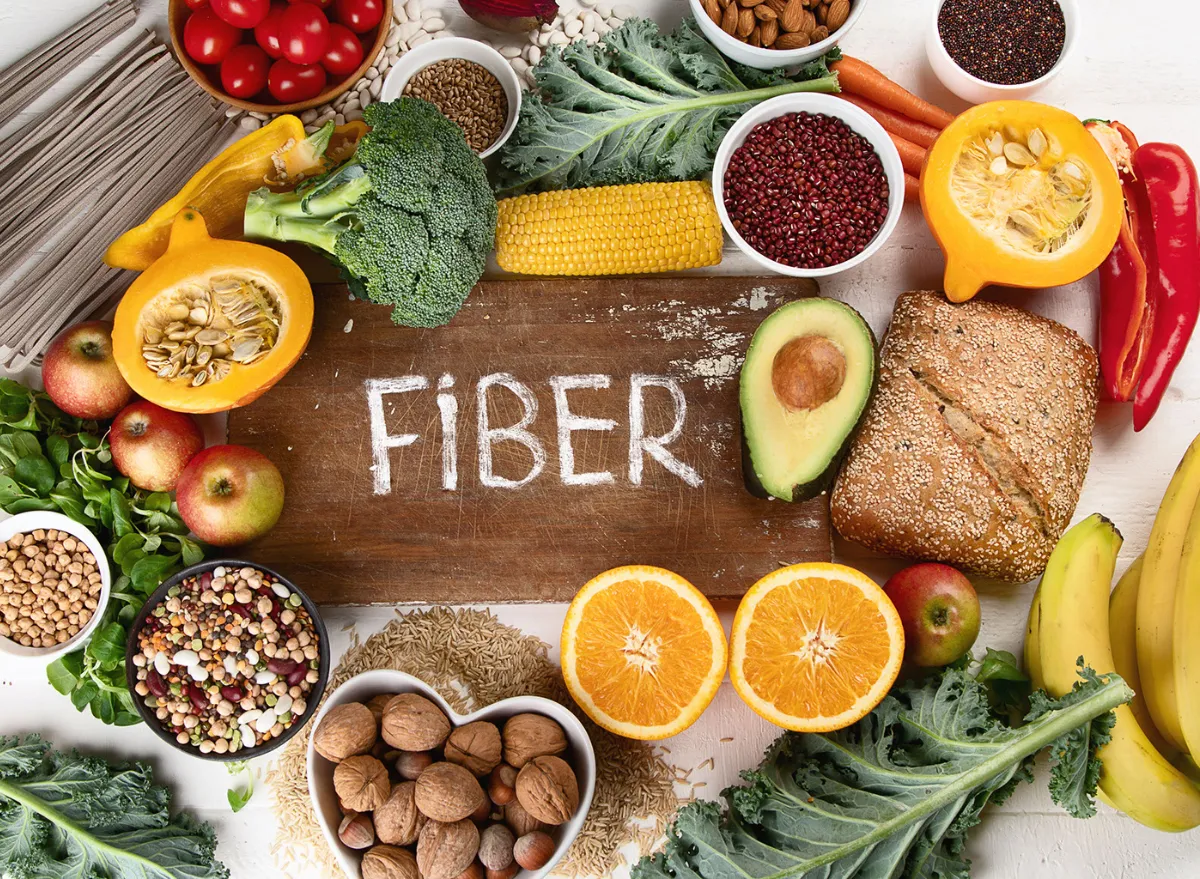One Major Effect Eating Fiber Has on Your Liver, New Study Says

Believe it or not, alcohol isn't necessarily the greatest contributor to liver disease… it's your diet in general. In fact, according to the Cleveland Clinic, non-alcoholic fatty liver disease affects a remarkable 25% of Americans, thanks to the way many eat. To help you maintain a healthy liver—an organ that is essential to ridding your body of toxins—a new study has identified a list of foods that researchers say are the best, and worst, at helping you steer clear of non-alcoholic fatty liver disease.
The peer-reviewed Journal of Nutrition has released the abstract for a soon-to-be-published study from a group of U.S. specialists in gastroenterology, hepatology (liver), nutrition, and public health. Recognizing that the effects of diet on the development of non-alcoholic fatty liver disease had rarely been assessed with respect to populations of multiple ethnicities, the researchers set out to do just that.
The researchers asked 1,682 male and female participants between the ages of 60 and 77 to complete a questionnaire about their diet habits. The participants came from a range of backgrounds: African-American, Japanese American, Latino, Native Hawaiian, and white.
After self-reporting their eating habits, the participants underwent magnetic resonance imaging (MRI) to measure their liver fat, as well as a full-body dual-energy X-ray absorptiometry scan—more typically known as a DEXA—to determine their overall body fat.
The researchers report that liver fat percentages were higher on average for individuals who reported eating the most fat, saturated fat, cholesterol, red and processed meat, and coffee.
Conversely, liver fat percentages were lower for participants who reported higher intakes of Vitamin C, Vitamin E, and dietary fiber.

It's known that fiber, sometimes colloquially known as "roughage," helps to flush the organs of waste, which could be one factor in this study's results. But also, foods that are high in fiber (like many vegetables, fruits, and grains) tend to be lower in non-beneficial fats while also delivering nutrients and compounds that can help to lower inflammation and fight disease in general.
So whether or not the fiber itself is to praise for the lower liver fat percentages in this study, this suggests a more balanced, nutritious diet in general may help contribute to liver health.
Get the Eat, This, Not That! newsletter for food and wellness news brought to you daily.
Also, check out:
- Popular Foods With More Vitamin C Than an Orange
- Popular Foods With More Vitamin E Than Almonds
- Popular Foods With More Fiber Than Oatmeal
- One Major Effect of Vitamin D on Your Bladder, New Study Says
- The #1 Worst Drink for Men, New Study Suggests
- Here's What Happens to Your Liver When You Drink Alcohol








